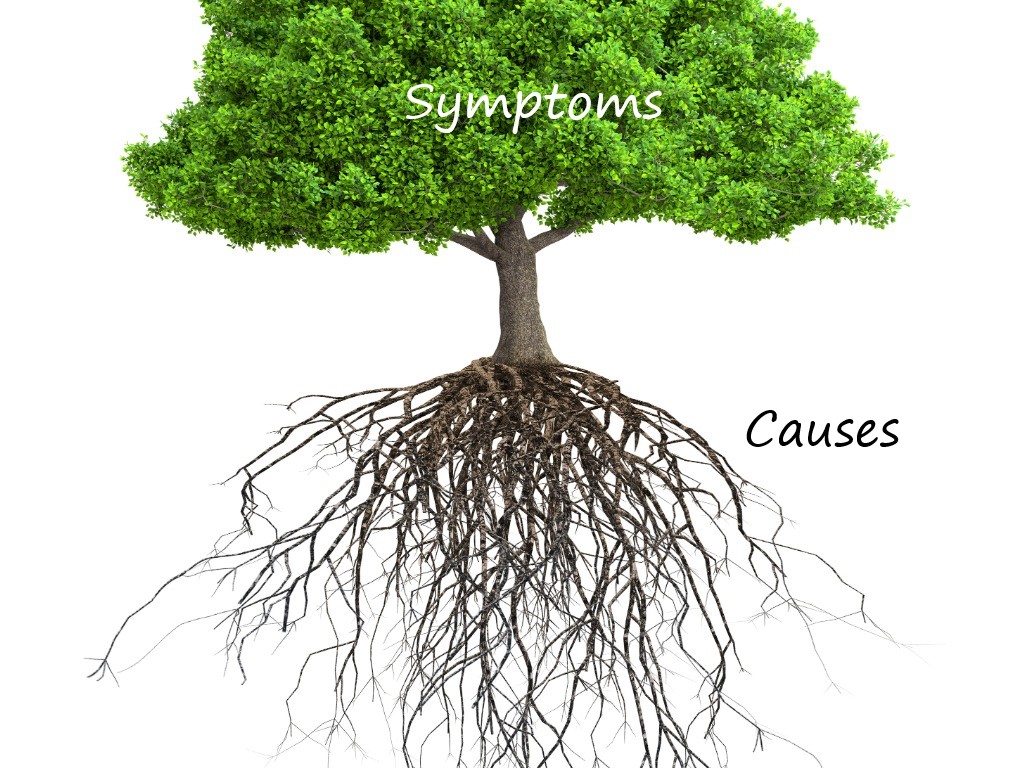by Dr. Tina Marcantel

A foundational principle of naturopathic medicine is to find and treat the root causes of an illness; to identify and remove the underlying causes of illness rather than to merely eliminate or suppress symptoms.
I am, of course, grateful for the many medications we have at our disposal to help suppress patients’ symptoms when necessary. On the other hand, in my medical career as a registered nurse and naturopathic doctor I’ve also seen the down side of simply treating (or band-aiding) symptoms—particularly when dealing with chronic health problems.
Medications that suppress symptoms often need to be increased over time to maintain their effectiveness. This may also lead to added medications that are necessary to counteract side effects from the original drugs. The results may be more and more medications with less and less effectiveness in helping the patient stay healthy.
Identifying and treating the root cause of the problem can often mean a simpler, longer lasting, and more effective outcome for the patient.
A recent patient of mine, “Jim,” came to me with a skin rash that had troubled him for years. A dermatologist had ruled out common allergies that might be the cause and he had been to several doctors who had ordered topical creams and other medications to treat the rash. Jim got some relief from the treatments, but the rash persisted and he was looking for a different approach to the problem. I explained that there are numerous underlying conditions that can cause dermatitis (inflammation of the skin) and that we could run some tests to see if we could identify a root cause.
After discussing Jim’s medical history, we settled on three possibilities to investigate. One was cortisol induced dermatitis, in which large amounts of the stress hormone are being released that can cause skin inflammation. Another was Hashimoto’s thyroiditis, a condition in which elevated antibodies cause inflammation throughout the body. We also talked about food sensitivity testing to see if Jim might be having a delayed reaction to some of the foods he was eating.
After doing some simple lab tests we determined that by avoiding certain foods and by taking some supplements to help reduce Jim’s cortisol output, we could probably reduce the inflammation in his body that was causing the dermatitis. After a few weeks of following these protocols, he reported an 80% reduction in the symptoms that had been troubling him for years. As a side benefit, Jim was also sleeping better because of the reduced cortisol levels in his system.
This is just one example of how addressing the root cause of symptoms can help. I’ve also seen patients who have been on antidepressants for years be able to wean off of their medications by correcting hormone imbalances like estrogen dominance or hypothyroidism.
If you’re struggling with a chronic problem, it’s important to dig a little deeper to try to get to the roots. Sometimes a relatively simple and more natural fix can be the answer!





